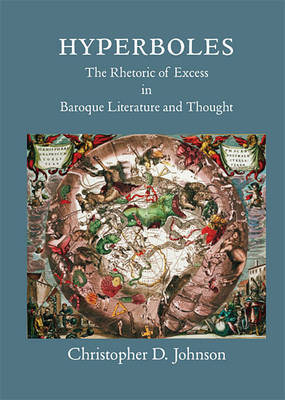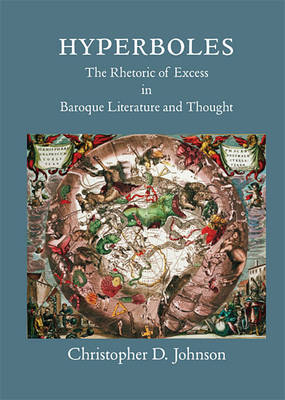
- Afhalen na 1 uur in een winkel met voorraad
- Gratis thuislevering in België vanaf € 30
- Ruim aanbod met 7 miljoen producten
- Afhalen na 1 uur in een winkel met voorraad
- Gratis thuislevering in België vanaf € 30
- Ruim aanbod met 7 miljoen producten
Zoeken
€ 36,95
+ 73 punten
Omschrijving
This book offers a detailed, comparatist defense of hyperbole in the Baroque period. Focusing on Spanish and Mexican lyric (Góngora, Quevedo, and Sor Juana), English drama (King Lear and translations of Seneca), and French philosophy (Descartes and Pascal), Christopher D. Johnson reads Baroque hyperbole as a sophisticated, often sublime, frequently satiric means of making sense of worlds and selves in crisis and transformation. Grounding his readings of hyperbole in the history of rhetoric and literary imitation, Johnson traces how rhetorical excess acquires specific cultural, political, aesthetic, and epistemological value. Hyperboles also engages more recent critiques of hyperbolic thought (Wittgenstein, Derrida, and Cavell), as it argues that hyperbole is the primary engine of a poetics and metaphysics of immanence.
Specificaties
Betrokkenen
- Auteur(s):
- Uitgeverij:
Inhoud
- Aantal bladzijden:
- 695
- Taal:
- Engels
- Reeks:
Eigenschappen
- Productcode (EAN):
- 9780674053335
- Verschijningsdatum:
- 1/07/2010
- Uitvoering:
- Paperback
- Formaat:
- Trade paperback (VS)
- Afmetingen:
- 155 mm x 229 mm
- Gewicht:
- 952 g

Alleen bij Standaard Boekhandel
+ 73 punten op je klantenkaart van Standaard Boekhandel
Beoordelingen
We publiceren alleen reviews die voldoen aan de voorwaarden voor reviews. Bekijk onze voorwaarden voor reviews.











